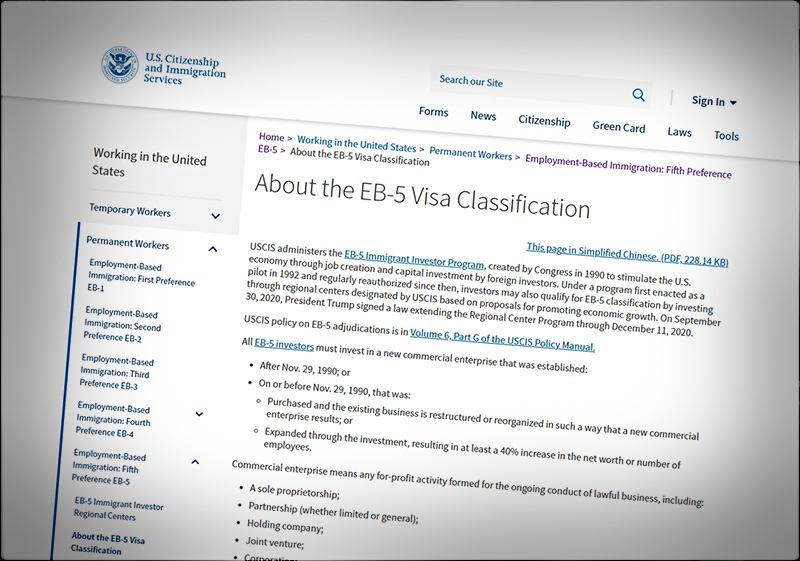
About a year ago — after waiting a quarter of a century to do so — the government increased the minimum investment in the EB-5 program from $500,000 to $900,000.
The EB-5 program gives conditional green cards to the alien families that have made such investments in projects approved by, but not guaranteed by, the Department of Homeland Security. Historically, most of the investments have been made by nervous Chinese people worried about their prospects in that country and wanting a set of additional passports.
Now a California firm is offering the same deal to alien investors — except one only has to put up $450,000 (i.e., less than the old minimum), and can borrow the other $450,000. The offer appears on their website and presumably would not be there without at least tacit DHS approval.
Allowing aliens to buy their way into the country is questionable enough; to open our doors to those who have borrowed part of the admissions price is more so.
The offer, by Playa Vista Equities (PLE) is intended to generate investments in a housing project called Merced Station, in the town (and county) of Merced, in California's Central Valley. Merced is a farm town; the development is supposed to provide housing for students at the University of California, Merced. It is the newest of the university's campuses.
The cost of the loan made to the aliens is quoted as 4 percent to 8 percent; this would be a remarkably wide range of rates in the rest of reality, but not in the wild world of EB-5. With banks often offering 0.01 percent interest on deposits (that is one one-hundredth of a percentage point), the interest rate to be charged by the middlemen is 400 to 800 times as much as they could get from a savings account.
A Positive Note. All too many EB-5 investments have been placed in glitzy downtown areas of our major cities, where the economic stimulus of the construction is not really needed. In contrast, the Merced project is going into a genuinely depressed area. If one googles "per capita income Merced, Calif.", one learns that it was, over the years 2014-2018, $21,634; the national average for the same period was about 50 percent higher, $32,621. Similarly, the unemployment rate in the county is about 50 percent higher than in the nation as a whole.
Rarely do EB-5 investments go into such areas.
A Negative Note. We try not to write about the many failing (and often fraudulent) EB-5 projects more than once or twice, but one in Florida demands a bit of extra attention. In this case, a group of EB-5 alien investors are trying to recoup $50 million in money they invested in the never-finished Palm Hotel in Palm Beach. As we reported some time ago, one of the defendants, Robert Matthews, used photos of himself with Bill and Hillary Clinton, and with Donald Trump, in his sales pitches, saying that both the current and the former presidents were on the project's advisory committee — which was not true.
Now we learn from an article at Law360 (partially behind a paywall) that two other co-defendants in the case, Joseph Walsh, Jr., and his father, Joseph Walsh, Sr., have been separately sanctioned for failing to obey court orders in the case, with the latter being accused of failing to appear for three scheduled depositions.
Update. Earlier this year, we wrote about the first EB-5 dispute known to us to take place in Hawaii. An alien EB-5 investor, Ye Jiang, and others had sued Zhong Fang and others for alleged mismanagement of two EB-5 projects, Hawaii City Plaza and Hawaii Ocean Plaza, with $65 million at stake.
A few days ago, the presiding federal judge, Jill Otake, dismissed the first amended verified complaint, in a 34-page scathing decision, saying that the plaintiffs had neither standing nor evidence in the case. She did so on the basis of the paper before her, and without a hearing. The plaintiffs, though they have an option of recasting their complaint, have suffered a serious setback. For the full text of her decision see this PACER file: case 1:20-cv-00100-JAO-KJM.
